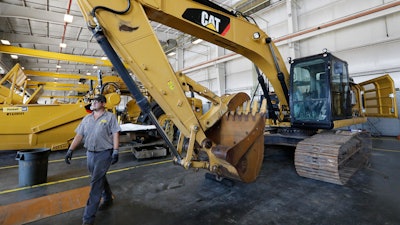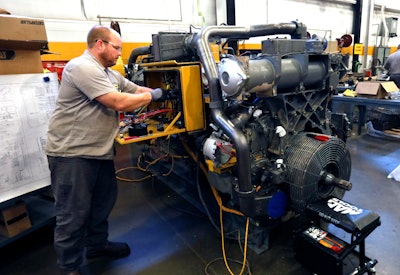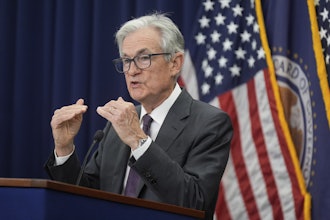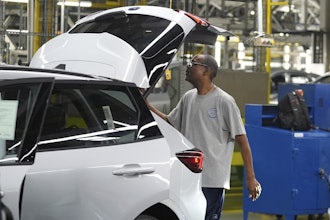
WASHINGTON (AP) — U.S. factory activity hit its lowest level in more than a decade, as President Donald Trump's trade wars take a toll on American manufacturing.
The Institute for Supply Management, an association of purchasing managers, said Tuesday that its manufacturing index shrank for the second straight month to 47.8% in September, down from 49.1% in August. Any reading below 50 signals that the sector contracting.
 In this Sept. 18, 2019, photo technician David Boxx works on updating an electrical system on a Caterpillar machine at the Puckett Machinery Company in Flowood, MS.AP Photo/Rogelio V. Solis
In this Sept. 18, 2019, photo technician David Boxx works on updating an electrical system on a Caterpillar machine at the Puckett Machinery Company in Flowood, MS.AP Photo/Rogelio V. Solis
"The trade war is wreaking havoc, to the point where the incipient upturn in manufacturing in China is not transmitting, at all, to the U.S.," said Ian Shepherdson, chief economist at Pantheon Macroeconomics.
Some economists also said that the ongoing union worker strike at General Motors could have played a role in a slower automotive market.
"That strike has now begun to affect production at suppliers too," said Paul Ashworth, chief US economist at Capital Economics. When the strike ends, we would expect the manufacturing sector surveys to rebound too."
Measures of production and employment slipped by 2.2% and 1.1%. New orders rose a slight 0.1% but remained in negative territory.






















